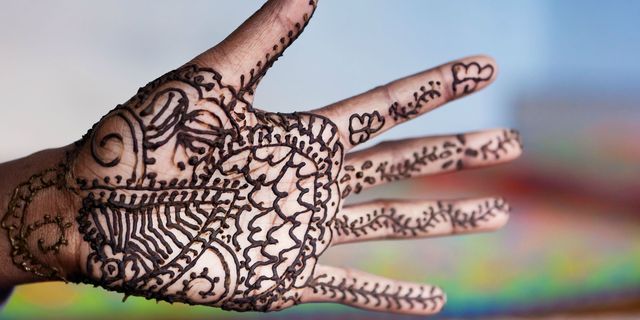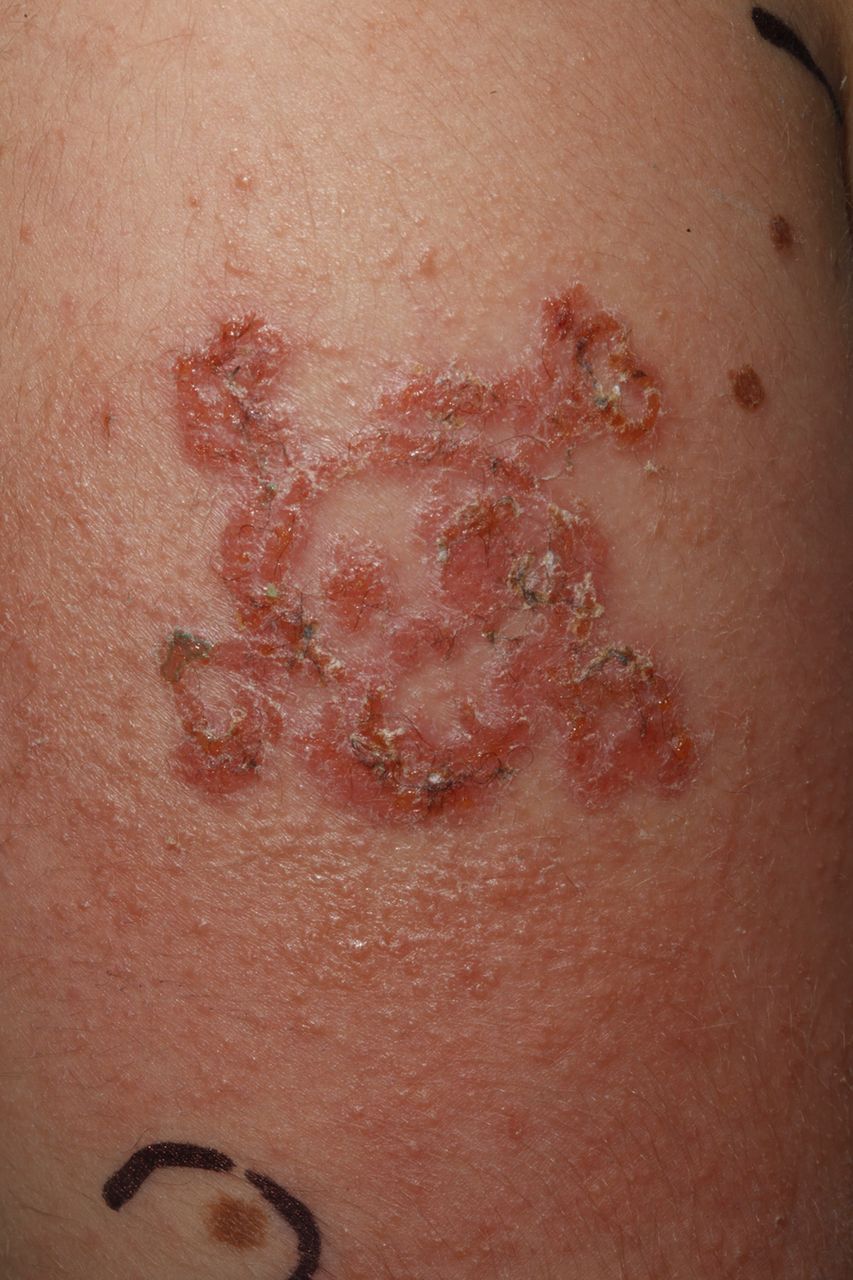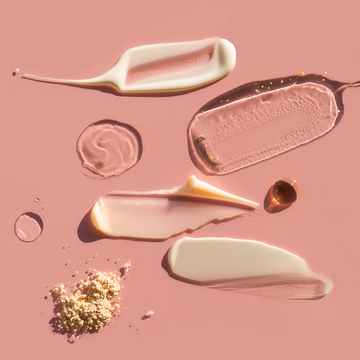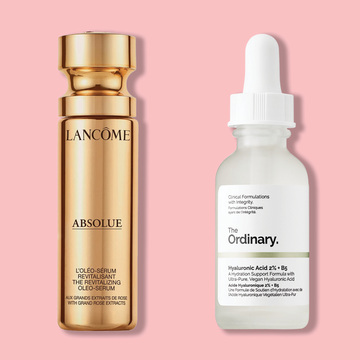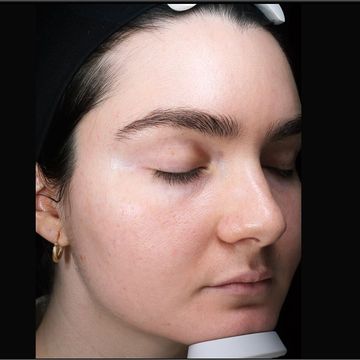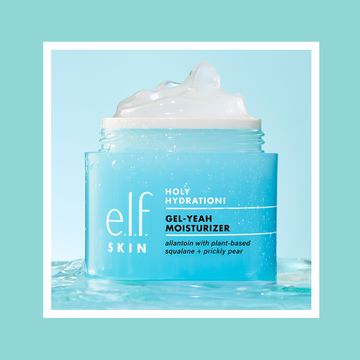Another day, another scary allergic reaction that brings to light just how dangerous black henna can be.
While traveling with his parents in Spain, a 10-year-old boy had a black henna tattoo in the outline of a skull applied to his skin. Four days later, the child suffered an awful allergic reaction: a bright red rash, crusted skin lesions, heat emanating from the skin, and pain upon touch. He was treated by doctors with antibiotics, a local anesthetic, a topical corticosteroid, and moisturizers, but while his lesions improved in a couple days, hyperpigmentation remained along the lines of where the black henna had been applied.
According to Jaya Sujatha Gopal-Kothandapani, Ph.D., who authored a study on the case at the Department of Oncology & Metabolism at the University of Sheffield in the United Kingdom, the child's reaction was probably caused by paraphenylenediamine, also known as PPD, a textile dye used to blacken the pigment of henna and quicken its drying time. It's known to cause scary reactions like this, as well as scars, depigmentation, and keloids — all as a result of something as seemingly innocuous as a temporary tattoo.
"Henna tattoos with the pigment paraphenylenediamine — the same stuff in most hair dyes — can give you an allergic reaction leading to red itchy and inflamed skin," explains dermatologist Mona Gohara, M.D. Gopal-Kothandapani and her colleagues advise avoiding tattoos with black henna, particularly while traveling because "this can make the tracing of the vendor and any subsequent public health management challenging." Translation: if someone is doling out dangerous black henna tattoos and you happen to get one then leave town, the likelihood of that person being found is pretty low.
It's important to note that black henna is not the same as natural henna, which people have been using for thousands of years as hair dye and to create elaborate designs on their skin. Here's how Gopal-Kothandapani described the differences to Yahoo Beauty:
"Natural henna paste is greenish, smells natural, takes six or eight hours to stain, will never burn the skin, and leaves a deep maroon color that can last for up to three weeks. Black henna is dangerous. The paste is jet-black, smells like a chemical, takes less than an hour or two to stain skin, may burn, and will leave a black color for more than three days."
Not sure if you're getting black or natural henna? Opt out of the tattoo or dyeing process all together, just to stay safe.
[h/t Yahoo

Sam's enthusiasm for makeup is only rivaled by their love of all things relating to cats. In their spare time, they enjoy watching scary movies, putting avocado on everything, and seeing how many shades of the rainbow they can dye their hair before 30.
